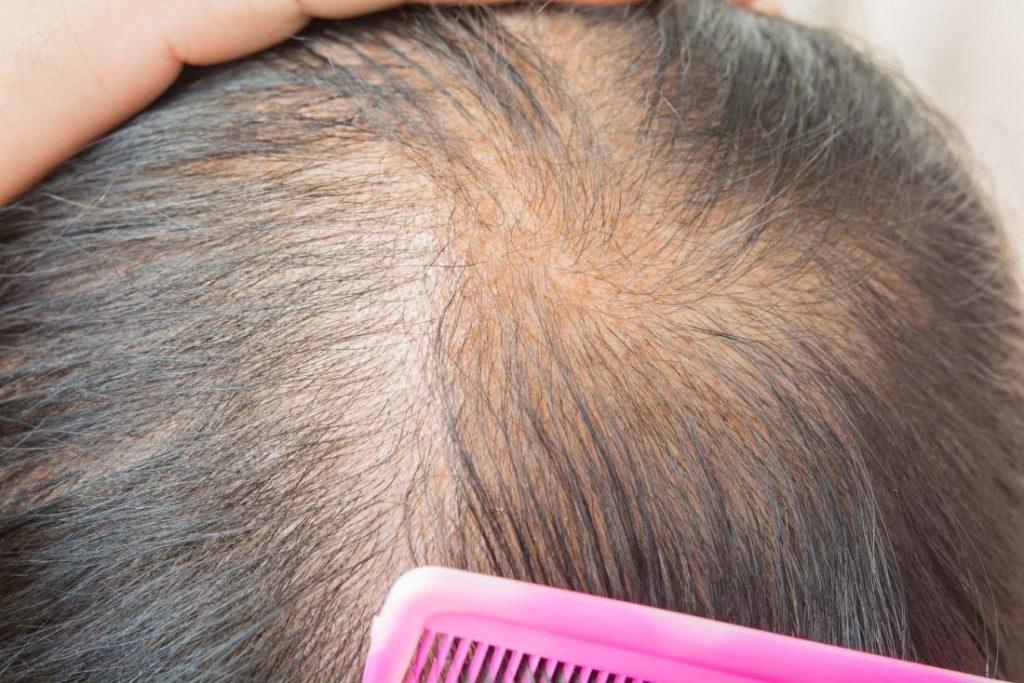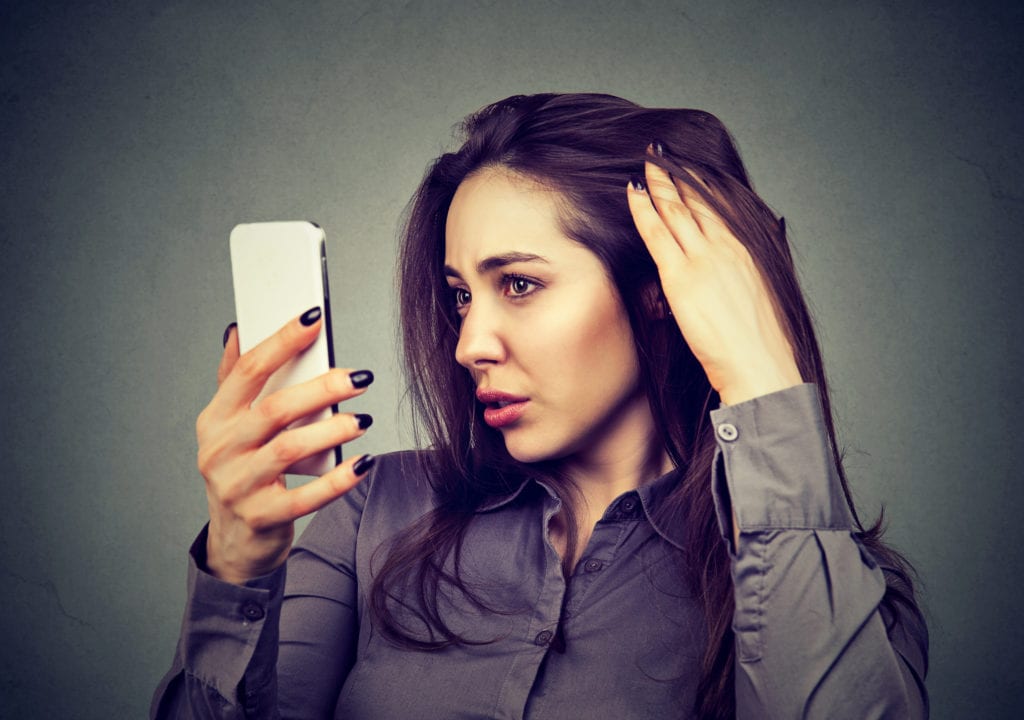Does your hair not as dense and thick as it used to be or is it thinner all over rather than just in one spot? If so, it’s critical to distinguish between thinning hair and abnormal hair shedding or hair loss. Losing a few strands every day isn’t the reason for alarm. According to the American Academy of Dermatology, it is normal to lose 50-100 hair strands every day. Yet, if you’re losing more hair than usual, it could be a sign of hair loss.
Hair loss, unlike hair shedding, is disturbing and requires medical treatment. We’ve put together detailed information on hair loss vs. hair thinning. So, we can help you identify the difference between the two.

Most people associate hair restoration methods with hair loss. Yet, hair thinning is also a reason to explore hair restoration methods. It is because thinning hair can eventually lead to significant hair loss. If treated early on, thinning hair can be stopped. So, you can continue to enjoy a full set of hair.
What is hair thinning?
Hair shedding or hair thinning is an inevitable aspect of the hair cycle. On our heads, we each have approximately 100,000 hair follicles. An average person loses roughly 100 hair strands daily. This is because of the development cycle of hair follicles. It is a normal loss and does not show any serious health problems. Hair loss can be caused by a variety of circumstances, including stress. You’re losing almost 100 strands per day in this situation.
What causes excessive hair thinning?
The following are three elements that influence hair thinning:
Stress
Excessive hair thinning is caused by a variety of circumstances, one of which is stress. Stress caused by a hectic job or life event can cause hair shedding over time. Excessive stress raises androgen levels in the body. This can cause your hair to become grey and strands to fall out. This is generally a temporary symptom when the stress is relieved. Moreover, the hair goes back to growing as it did in the past.
Age
If you’re approaching the menopausal stage, you might notice a lot of hair falling out. This is because of the body’s hormonal fluctuations. Your hair thins as you get older, making it more prone to shedding.
Hormonal Imbalance
Excessive hair thinning is due to hormonal imbalances that disturb the hair growth cycle. When your body’s androgen levels rise, your hair cycle shortens. As a result, your hair shed more than usual. Also, hormonal changes are due to pregnancy and menopause. Hair thinning can also be a cause of health conditions. For example, your thyroid disorders can affect the way hair grows.
Hair Loss and Thinning: What is hair loss?
In contrast to hair shedding, hair loss is primarily induced by external factors. When something hinders your hair from growing, you will experience hair loss. Anagen effluvium is the medical word for this.
Anagen effluvium is the sudden loss of hairs in their growing phase (anagen). This is due to an incident that inhibits the hair follicle’s mitotic or metabolic activity. While hair loss can be reversed, hair regrowth might take anywhere from one to three months. It can also result in irreversible alopecia in extreme circumstances.
What causes hair loss?
There are many causes of hair thinning and pinpointing the cause can help you. Besides, your doctor can explore the right types of treatments to stop the hair thinning from continuing. Hair loss can be due to several external factors, including:
Nutritional imbalance
A poor diet is typically the source of nutritional imbalance. Hair loss can be caused by a lack of important nutrients such as:
- Vitamins B3
- Iron
- Vitamins D
- Proteins
- Lipids
You need to consume fresh fruits and vegetables daily to maintain a healthy diet. Nuts and seeds should also be included in your diet to promote hair development. So, you should avoid overly processed and unhealthy foods.
Heredity
Genetic hair loss affects some people. Possibly your genetic makeup is to blame if you can’t find an obvious explanation for your hair loss.
Hair thinning can run in families. If an individual’s parents have thinning hair or hair loss, he or she is at a higher risk of developing it. Also, it applies across genders. Women can experience thinning hair even if their fathers experienced it and not their mothers.
Sensitivity to certain drugs or medical conditions
Some medications can cause your hair to stop growing and alter your hair growth cycle. Chemotherapy, for example, might result in hair loss. Certain medical conditions and other disorders make people more prone to thinning hair. They include trichotillomania (obsessive hair-pulling), infections, and more.
Hair Treatments
Heat can dry your hair if you use it too much. Moreover, heat can also induce hair breakage by altering the internal protein structure. You should minimize heat style and use heat protectant products to avoid this.
There are a lot of hair treatments and hairstyles that can cause hair thinning. Tight cornrows or ponytails that regularly pull on the hair. Also, other treatments involving harsh chemicals contribute to hair loss and hair thinning.
How can you determine the difference between hair loss and thinning?
You may be experiencing hair loss if you are shedding more than 100 strands each day. Hair loss and hair thinning are often difficult to distinguish. However, if you see more hair strands on your pillow or comb, see your dermatologist. Remember that the easiest way to tell the difference between hair loss and hair thinning is to consult a dermatologist.
When your hair is thinning, it grows back with fewer hairs than before. Hair thinning can occur in specific areas of the scalp or all over the head. People usually notice thinning hair when they have less volume than usual. Moreover, they feel like there is less hair on their scalp overall.
Hair loss is usually more severe. It can affect large sections of the scalp and cause hair to fall out totally or in significant amounts. Hair loss is significantly more noticeable than thinning hair.
Consider this: if you met a stranger, he or she would be able to tell you had hair loss but not hair thinning. This is because hair loss is clear at first glance. Whereas, hair thinning happens gradually over time. As a result, hair shedding is most noticeable to you and your loved ones.
Hair loss and Hair Thinning Treatments
If you have hair thinning, it might be tough to find the proper treatment to prevent it from worsening. Hair transplants, for example, can restore hair to parts of the scalp where it has been lost due to hair loss. Hair thinning occurs all over the head, so, it might be difficult to treat with procedures like hair transplants. Moreover, hair thinning treatments are not the same as hair loss treatments.
Here are some popular and effective ways hair loss specialists can help prevent, slow down, and reverse hair thinning.
Supplements and Medications
Some drugs and supplements can help restore hair growth and halt the progression of hair thinning.
Laser Combs
Laser combs and hats are increasingly popular for hair thinning. This is due to their ability to stop additional hair loss and even regrow hair. They entail the application of laser light to the scalp, which promotes healthy hair growth.
Collagen Induction Therapy (CIT) and Stem Cell Therapies
These therapies involve using the body’s natural healing systems to encourage and trigger hair growth on the scalp. A lot of advanced hair loss treatment centers provide this service. Because it’s natural and involves growing patients’ hair back naturally.
Treating Underlying Conditions
It’s critical to tackle the underlying reason for hair loss, such as thyroid or stress, first. Hair thinning can sometimes stop on its own after addressing the underlying problem. It’s critical to work with a hair loss professional to figure out what’s causing your hair thinning before seeking therapy. Examining your family’s medical history can also help to detect the cause of your hair loss. As part of the process, you may need blood tests to determine your overall health.
Looking for Reliable Scalp Micropigmentation Treatment
Are you interested in exploring hair restoration methods for conditions like hair thinning? Call MAXIM SMP to discuss your options with qualified and experienced hair loss specialists. MAXIM has offices located in several cities in the United States and overseas. To make an appointment, fill out their appointment request form today. So, you can learn about scalp micropigmentation costs. The phone numbers of their nine office locations are available on this webpage.
